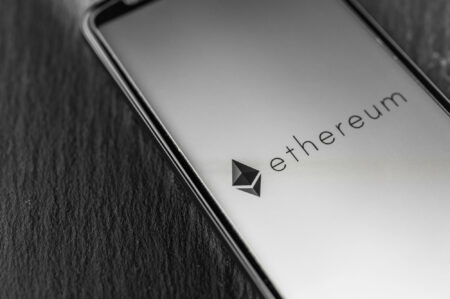What has happened this week in the world of blockchain and cryptocurrencies? The most relevant local and international events, as well as appealing background reports, are presented in a pointed and compact manner in the weekly review.
Selected articles of the week:
Under the name “For a financially strong, sovereign, and responsible Switzerland (Bitcoin Initiative),” a private committee launched a popular initiative in December to commit the Swiss National Bank (SNB) to invest in Bitcoin. Specifically, the proposal would amend the section of the Swiss Federal Constitution that mandates a currency reserve in gold. Additionally, the SNB would be required to hold part of its reserves in Bitcoin. The collection period runs until the end of June 2026. At this year’s annual general meeting of the National Bank, co-initiator Luzius Meisser once again took the opportunity to advocate for the proposal. However, the bank’s presidency wants nothing to do with cryptocurrencies. The long-debunked concerns regarding volatility and liquidity were once again cited as the primary arguments.
Luzius Meisser once again presented the arguments for a long-term investment in Bitcoin at the SNB’s general assembly.
Ripple aims to acquire Circle
Ripple is one of the oldest crypto projects. The company, founded in 2012, aimed to enable low-cost, cross-border transactions. It was intended to differ from Bitcoin by offering a more scalable solution. The foundation of the network: the cryptocurrency XRP, formerly also called “Ripple.” However, in recent years, Ripple has struggled to establish XRP as a means of payment. Instead, the company now focuses on stablecoins. In October 2024, Ripple launched the RLUSD, which has a relatively small market value of 316 million USD. The distribution of its own stablecoin may have proven more challenging than Ripple originally anticipated. Through a monthly vesting of XRP tokens, however, the company has significant financial resources. According to the Q4 market report, Ripple held 4.4 billion XRP by the end of last year, with a current value of 9.7 billion USD. The company uses these funds for strategic acquisitions. Ripple has proposed an acquisition of the competing stablecoin provider Circle, the issuer of USD Coin (USDC), for 4 to 5 billion USD. However, the offer was rejected as too low.
The crypto firm Ripple proposed a takeover of rival stablecoin provider Circle for 4 to 5 billion USD.
Digital assets as a revenue driver for Revolut
Revolut, Europe’s most valuable fintech startup, reported a significant profit jump of over 1 billion pounds for 2024. A substantial part of the revenue is attributed to the booming digital asset business. The wealth management sector, which includes stock trading and especially cryptocurrencies, generated approximately 506 million pounds in revenue in 2024—nearly four times the amount from the previous year. This business segment helped Revolut achieve its first annual profit in 2021 when retail investors wanted to secure a share of the crypto boom. The conclusion is clear: Offering cryptocurrencies to customers leads to significant profits. Those who avoid the sector risk losing customers.
Revolut increases profit to over 1 billion pounds and receives British banking license – focus on crypto, loans and global expansion
Mastercard supports stablecoins
Mastercard has also recognized this principle. The payment giant has been working for years on supporting stablecoins, cryptocurrencies with a 1:1 peg to the US dollar. Selected merchants can accept payments in stablecoins like USDC and instantly convert them into fiat currency. This is done through Circle’s fast, blockchain-based network. Customers benefit from a modern checkout experience that integrates digital assets directly. Merchants, on the other hand, enjoy lower transaction fees, real-time payment arrivals, and greater compatibility with global payment channels.
Mastercard launches stablecoin payments with USDC – fast, global transactions for merchants as a bridge between fiat and blockchain.
21Shares files for a SUI ETF
In addition: the wave of crypto-ETF applications to the US Securities and Exchange Commission (SEC) continues. Since the regime change at the agency, more than 70 new products are under review. In the next four weeks, the first altcoin ETFs could receive approval, as reported by CVJ.CH. Solana and XRP are among the most promising candidates. With the filing of an ETF for Sui, the long list of upcoming US funds adds another cryptocurrency. The launch of the “21Shares SUI ETF” is contingent upon the effectiveness of the Form S-1 and the approval of a Form 19b-4 filing by the SEC.
Swiss crypto product provider 21Shares has filed an application with the SEC to launch an ETF on the crypto asset Sui.









